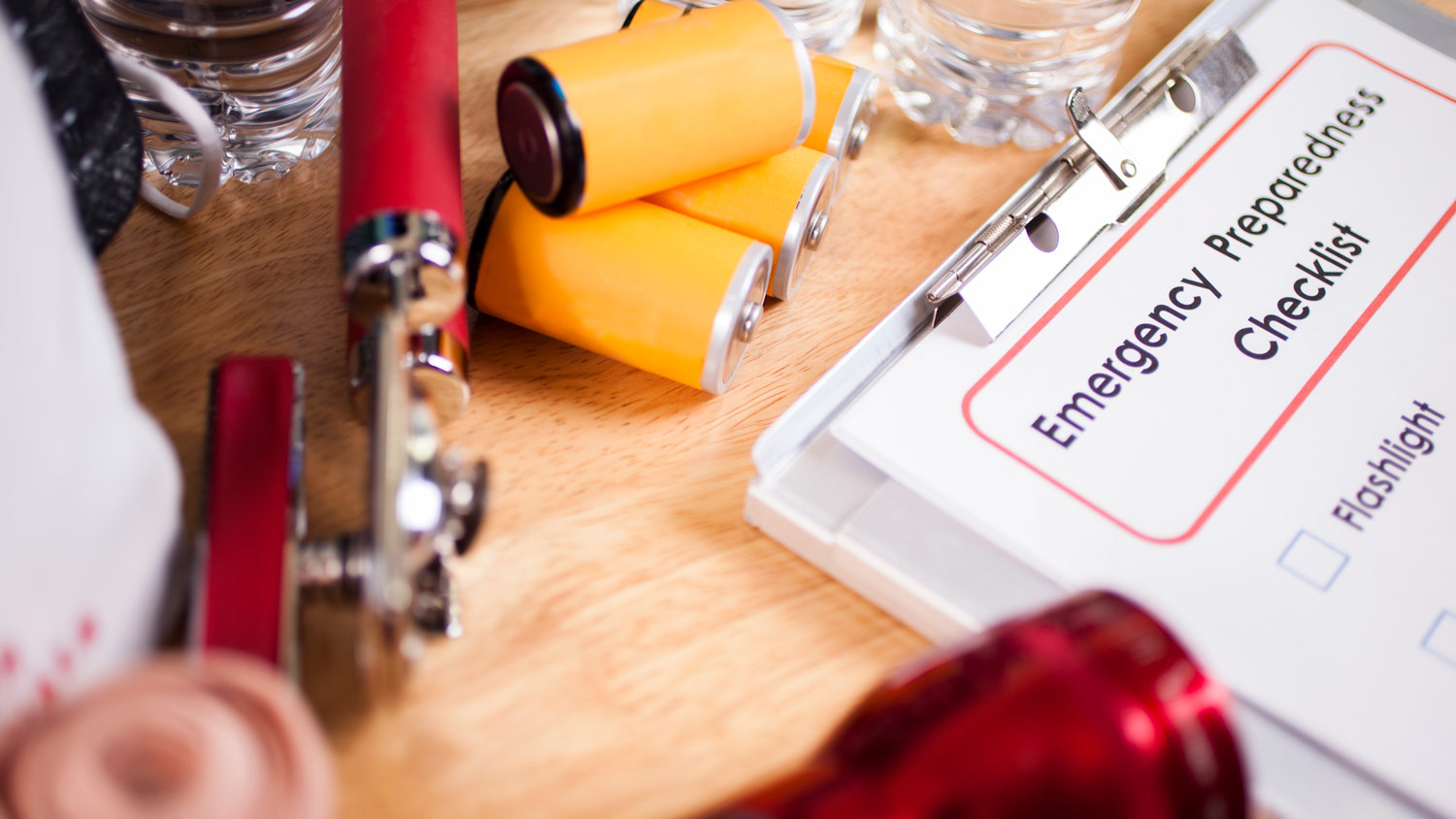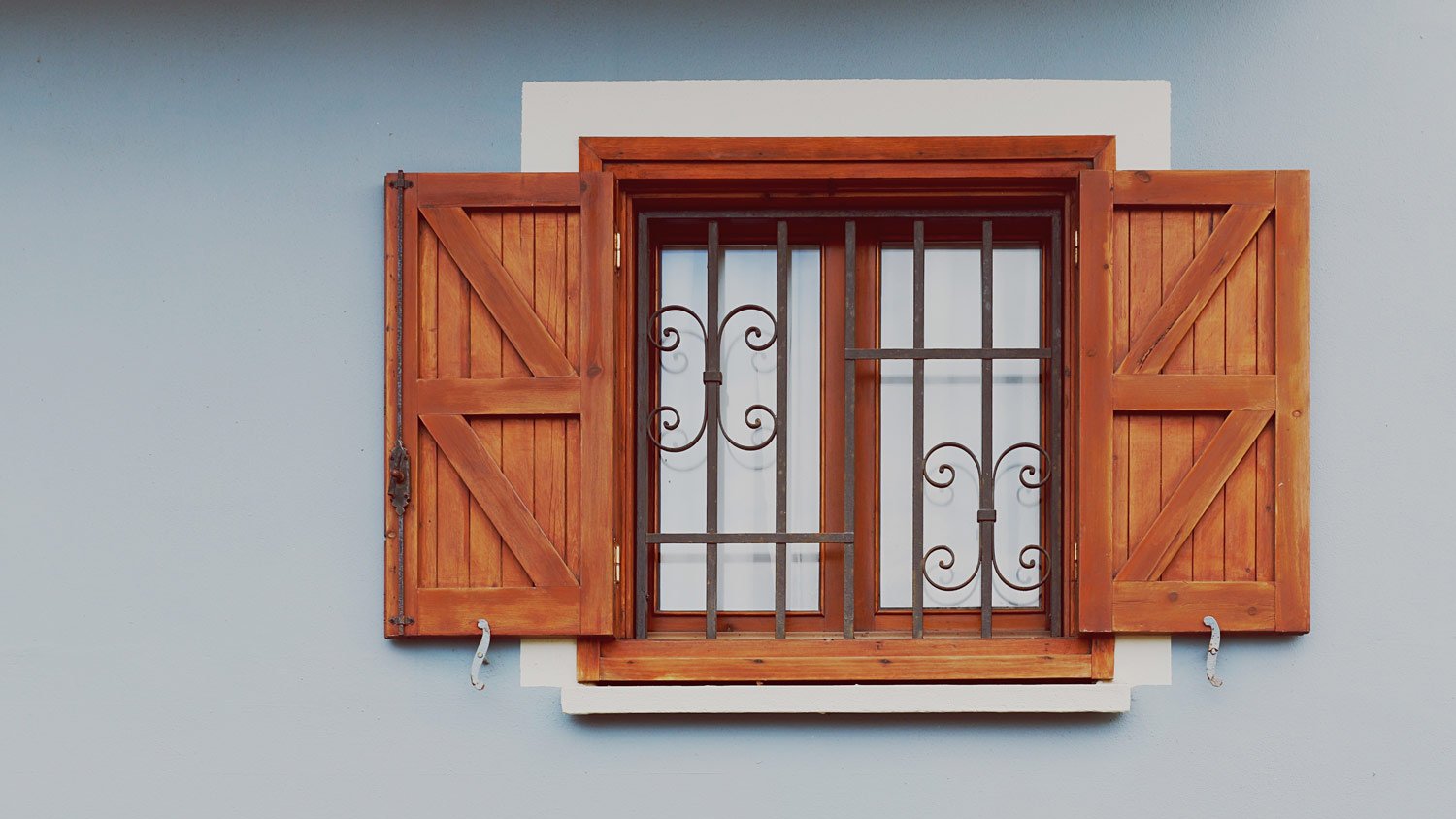
Find out how much it costs to build a chicken coop—whether you've got a few hens in your backyard or a big, self-sustaining flock—with our expert guide.
Everything you need to check off your hurricane preparedness prep list


You can’t control the weather, but you can control how prepared you are for a severe storm. From an escape route to emergency cash, creating a plan will alleviate stress and help you and your family weather the storm with ease. Use our hurricane preparedness checklist to get started.
Getting your family on the same page about what to do should a hurricane strike is critical. That’s where a checklist to help you prepare for tropical storms and hurricanes can help.
Follow this guide to prep your home, from readying your yard to filling your “go” bags. With this checklist, you can handle hurricane season with a greater sense of security.

Stock your home with what you need to get through a tropical storm or hurricane. Make a regular inventory to remove expired items and replenish your supplies.
Having the following items on your hurricane prep checklist can help you get through a bad storm that has you stuck at home:
Store a 7-day supply of 1-2 gallons of water per person
Stock a 7-day supply of non-perishable or semi-perishable food items (peanut butter, bread, potatoes, apples, onions, canned goods, protein bars)
7-day supply of dry pet food
Camp stove
Propane and/or charcoal
Cooler
Disposable or travel utensils (plates, forks, knives, cups, bowls, napkins)
Salt & pepper
Aluminum foil
Garbage bags
Store a 2-4 week supply of any medical prescriptions
Pain reliever (aspirin and non-aspirin options)
Backup glasses or contact lenses
Diapers
Feminine hygiene products
Antibacterial wipes
Hand sanitizer
First aid kit (plastic bandages, alcohol wipes, tweezers, allergy medicines, upset stomach medicine, burn ointment, gauze, and antibiotic cream)
Flashlights, 1 per person
Flashlight bulbs and batteries
Water containers
Portable TV
Portable radio or weather radio
Tool kit (good to include a hammer, nails, and pliers at minimum)
Duct tape
Can opener
Fire extinguisher
Plastic tarp
Protective headgear and eye gear
Whistle
Tree saw
Rain gear
Matches or lighter
Outdoor extension cords
Bug repellent
Sunscreen
Pet medication
Pet crate or carrier
In case of a hurricane, everyone you live with needs to be on the same page. That’s why a family escape plan everyone knows is a must. This means assigning prep tasks ahead of time and sharing other critical information.
Make sure everyone knows where to find important items like personal documents and their “go” bags. Use the following hurricane prep checklist to create a plan for your family to follow in the event of an approaching hurricane.
Having one go-bag at your home is smart, but smarter still is having multiple go-bags prepped at different locations.
Smaller emergency packs (containing things like a first aid kit and a utility tool) are good for keeping inside purses and backpacks during the school or workday.
One escape route is good, but go the extra mile to cover your bases.
Plan an escape route using a paper atlas (your GPS may not be reliable during a storm). Make sure to keep the atlas in a dedicated place.
Plan escape routes from other locations—from school, work, the grocery store, etc.
Keep hazards in mind while planning: Is there a bridge you usually cross that could close? A country road that may wash out? Plan alternate routes just in case.
While cell phones may not work during a hurricane, it’s important to keep them charged should you have a signal and need to use it.
Provide each family member with a solar-powered charging device.
Make sure to take the documents that matter the most with you when you leave your home.
Take your passport, birth certificate, social security card, and any other important medical or personal documentation.
Spare yourself the stress by keeping your documents all in one easy-to-reach, water-tight sealed box or file so you can snatch it up on your way out the door.
ATM cards and checks aren’t always accepted. Be prepared by having a stash of cash on hand.
Keep between $100–$300 in cash in case of an emergency.
More than $300 in cash on your person can be risky in case of loss or theft.
Make sure you have two backup sets of keys for your home and for your vehicles. Things get lost in high-stress situations. Knowing you have more than one set of keys should something go wrong prevents even more stress.
Because there is no way of knowing if landlines and/or wireless phones will be down, designate an emergency contact (and a backup) who live in a different part of the country (but in the same time zone) that you do.
Make them responsible for communicating whatever information there is to share, as it is available. Delegating one person with this task saves you time on the phone and from potential confusion.
If an evacuation order is issued, leave prepared and do not go back until you’re told it’s safe to do so. These orders are given to save lives, yours as well as the rescue workers tasked with aiding others during hurricanes.
You have stocked up and implemented a family plan for what happens in case of a hurricane evacuation. Now, it’s time to focus on preparing your home for potential storm damage caused by weather emergencies.
Your hurricane yard prep checklist should include:
Remove hard mulch (fast wind makes it dangerous)
Trim trees and bushes
Remove or reinforce outdoor planters, garbage cans, furnishings
Restock yard clean-up supplies (garbage bags, rakes)
Tip: Buy and install a backflow prevention system for your home’s plumbing. This keeps the water building up during storms from flooding into your home’s sewer system and covering your home in raw sewage.

Next up is tackling your home’s exterior. All it takes is a few simple tasks to make sure the outside of your home is prepared for hurricanes.
Inspect your roof for damaged shingles or visible holes
Caulk any holes in doorways or windows
Reinforce your doors
Inspect, repair, and reinforce your window shutters
Roof maintenance is a key component of hurricane prep.
“To prevent leaks, homeowners should inspect their roofs annually and right before and after a major storm such as a tornado, hurricane, flood, or snowstorm,” says Eric Gonzalez, president of Regions Commercial Roofing in Dallas/Fort Worth, TX.
Contact local roofing and contracting professionals in your area for multiple quotes for a hurricane preparedness assessment.
Hurricanes aren’t just a threat to the outside of your home. They can cause damage on the inside, too. Prevent it by covering your bases and being prepared.
Get roof trusses (the beams supporting your roof) reinforced
Move electronics away from windows
Secure heavy furniture
Inspect and repair your windows to prevent water from coming in
Hurricane season can be scary, but being prepared is half the battle. Don’t wait for a disaster to strike; prepare today so you can worry less tomorrow. Keep this hurricane prep checklist handy to ensure you have peace of mind year-round.
From average costs to expert advice, get all the answers you need to get your job done.

Find out how much it costs to build a chicken coop—whether you've got a few hens in your backyard or a big, self-sustaining flock—with our expert guide.

Looking to add a personal touch or some patriotic flair to your property? Learn about flagpole installation costs and how to budget appropriately.

A bidet—stand-alone, attachment, spray nozzle, or toilet combo—reduces toilet paper usage and saves money, but how much is a bidet? Here’s how much you’ll pay.

Unmounting a TV is much easier than mounting it. Grab your screwdriver and a friend and follow these steps to learn how to take a TV off a wall mount.

If you’re not keen on spending your afternoon assembling flat-pack furniture, bring in the professionals. How much does furniture assembly cost? It can be shockingly affordable.

You may be ready for fall, but is your home? Use this fall home maintenance checklist to prepare your home and yard for the changing seasons.